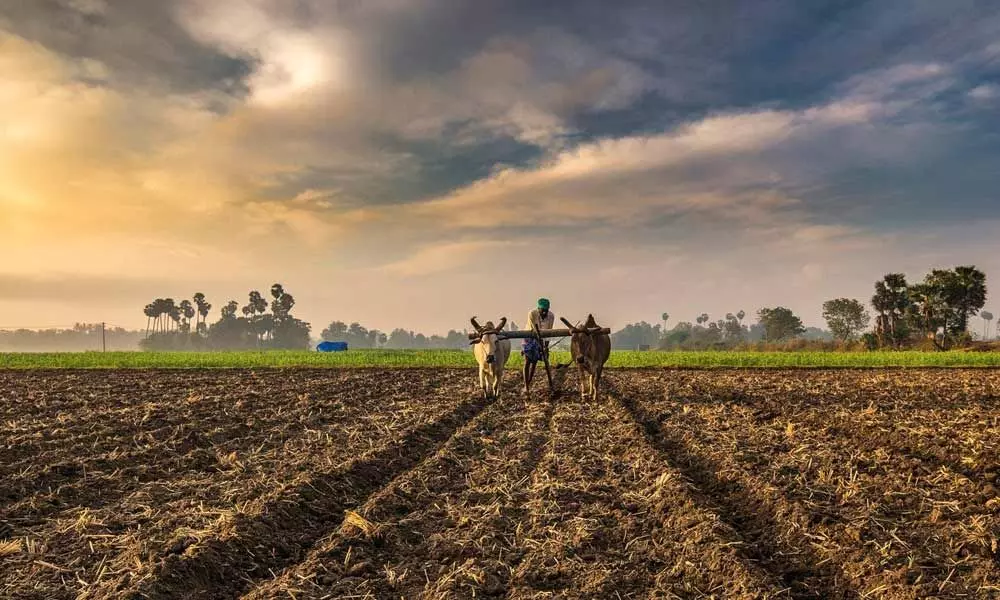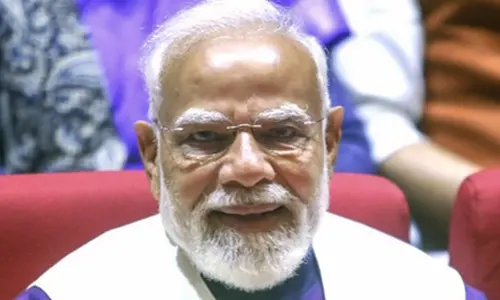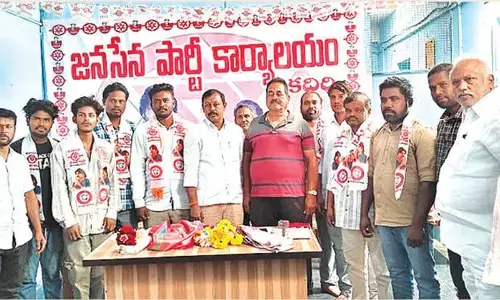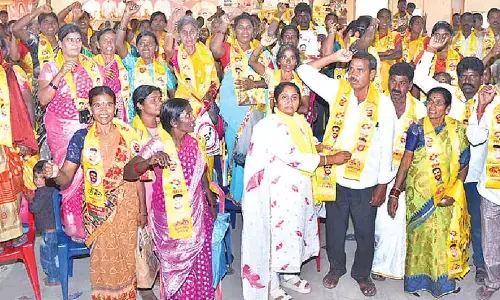Centre's new Agri Bill will spell doom for farmers

Centre’s new Agri Bill will spell doom for farmers
The Telangana Rashtra Samithi (TRS) MPs will strongly oppose the new Agriculture Bill to be introduced by the Central government in the Rajya Sabha on Monday and also vote against it
The Telangana Rashtra Samithi (TRS) MPs will strongly oppose the new Agriculture Bill to be introduced by the Central government in the Rajya Sabha on Monday and also vote against it. Telangana State Chief Minister and TRS president K Chandrashekhar Rao instructed TRS MPs to this extent, stating that the Bill will cause severe harm to the farming community and was only meant to benefit the corporates.
The Lok Sabha has passed three agriculture sector Bills in the ongoing monsoon session amid strong protests by Opposition parties. The two farm Bills - one on agricultural market reforms and the other on contract farming provisions - while the other one is on amending Essential Commodities Act. Already Sant Akali Dal (SAD) leader Harsimrat Kaur Badal resigned from the Union Council of Ministers in protest against the legislation.
The Opposition parties opposed the three Bills, calling them "anti-farmers". The issues and fears raised by them include end of 'minimum support price' (MSP) regime in due course, irrelevance of State-controlled Agricultural Produce Market Committee (APMC) 'mandis', risk of losing out land rights under contract farming rule, reduction in price of farm produce due to market domination by big agri-businesses and exploitation of farmers by big contractors through contract farming practices.
These three Bills have to be seen holistically, as they are interdependent with one another. The basic objective of these three bills clearly shows to create enabling conditions to establish corporate agriculture on the long run including foreign direct investment in retail sector. In other words, for the first time after Independence, India is preparing to part away with its nationally accepted Small Farmer Economy concept.
The key provisions of the proposed legislation are intended to help small and marginal farmers (86% of total farmers) who do not have means to either bargain for their produce to get a better price or invest in technology to improve the productivity of farms. The Bill on agriculture market seeks to allow farmers to sell their produce outside APMC 'mandis' to whoever they want. The legislation on contract farming will, on the other hand, allow farmers to enter into a contract with agri-business firms or large retailers on pre-agreed prices of their produce. This is supposed to help small and marginal farmers as the legislation will transfer the risk of market unpredictability from the farmer to the sponsor. The Essential Commodities (Amendment) Bill, 2020, seeks to remove commodities like cereals, pulses, oilseeds, edible oils, onion and potatoes from the list of essential commodities. It means the legislation will do away with the imposition of stockholding limits on such items except under extraordinary circumstances such as war and natural calamities. This provision is expected to attract private sector/foreign direct investment into the agriculture sector.
Agriculture together with horticulture, animal husbandry, fisheries and agro-forestry are the main sources of income for the population and it is the most obvious engine for social equity and economic growth of the country. However, due to small holdings, fragmentation, low investment capacities, lack of access to technologies, credit and marketing institutions, small farming economy is in a serious crisis. We all have been observing that agri-food systems are undergoing rapid transformation. Increasing concentration in processing, trading, marketing and retailing is being observed in all regions and in all segments of production-distribution chains in India. Given this background, contract farming is seen by proponents as a way to raise small-farm income by delivering technology and market information to small farmers, incorporating them into remunerative new markets. Critics, however, see it as a strategy for agribusiness firms to pass production risk to farmers, taking advantage of an unequal bargaining relationship. There is also concern that contract farming will worsen rural income inequality by favouring larger farmers.
As experiences from other parts of the world shows, multi-national companies are not famous for improving the situation of farmers by paying better prices, if at all they pay stable prices. They need reliable supplies and, therefore favour contract-farming and large-scale suppliers, because they are more reliable, which gags the small farmers and pushes prices down. They will definitely induce more efficient supply chains through improved infrastructure (roads, cold storages) but who will profit from these efficiencies is the question. They will certainly introduce new technology, more variety in choice, but there is no guarantee and also no mandatory that they will source this only from India as earlier 30% mandatory local sourcing in FDI has been scrapped. They are usually able to achieve price reductions through economies of scale, but certainly at the cost of huge number of jobs lost in informal traditional sectors. The quality of food produced and the environmental implications of this production is also under severe criticism worldwide.
Finally, Chief Minister of Telangana, Chandrashekhar Rao also found fault with the Centre's decision to reduce the import tax from 50 per cent to 15 per cent allowing import of one crore tons of maize from abroad. He pointed out that the Centre had already procured 70-75 lakh tons of maize. "Whom does the Centre want to benefit at a time when the nation is facing an economic slowdown? We have plenty of maize produced in the country. What is the point of reducing the taxes by 35 per cent and allowing imports of maize? What will happen to our farmers and their produce?" he demanded to know.
(The writer is a member of Telangana Legislative Assembly and Humboldt-expert in agriculture, environment and cooperation)















